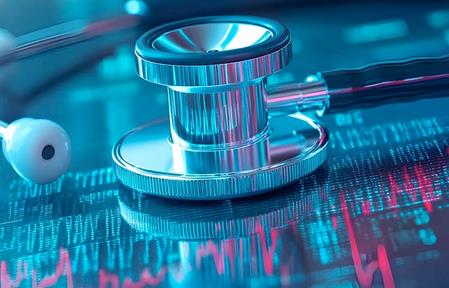Health
New Code Amendment Enhances Transparency in India’s MedTech Sector

The Department of Pharmaceuticals (DoP) in India has introduced significant amendments to the marketing code for medical devices, aiming to enhance transparency within the MedTech sector. Announced on September 3, 2024, this revision to the Uniform Code for Marketing Practices in Medical Devices (UCMPMD) is designed to promote ethical marketing practices among manufacturers.
Under the new guidelines, medical device companies are now permitted to provide free evaluation samples to healthcare professionals, allowing them to gain practical experience with the products. However, the code imposes a limit on these samples, capping them at 2 percent of domestic sales. The valuation of these samples must be recorded at stockist price if produced in-house, or at the purchase price if sourced externally.
Mandatory Disclosures and Prohibitions
The amendment requires companies to disclose their spending on free samples, continuing medical education (CME) programs, event sponsorships, and any pre-approval expenses related to international travel, lodging, and hospitality for specialist doctors. This information must be presented in a newly established annexure format. Additionally, the revised code explicitly prohibits the provision of gifts, cash grants, and personal travel or hospitality benefits to healthcare professionals and their families.
The Association of Indian Medical Device Industry (AiMeD) has welcomed these changes, emphasizing their role in fostering transparency, fairness, and accountability. Rajiv Nath, Forum Coordinator of AiMeD, stated, “At AiMeD, we welcome the Universal Code of Ethical Marketing of Medical Devices and the simplified annual reporting format. The Code ensures ethical and transparent marketing, fostering fair competition and stronger reputations for both domestic and overseas manufacturers.”
The amendments also stipulate that the chief executives or managing directors of medical device companies must file annual declarations of marketing expenditure within two months following the close of the financial year. For the financial year 2025, this deadline has been extended to September 30, 2024.
Data Retention and Compliance Measures
In terms of compliance, industry associations are tasked with ensuring that disclosure data is securely stored and adequately protected. This data must be retained for a minimum of five years or longer if necessary for any inquiries or proceedings before the Ethics Committee for Marketing Practices in Medical Devices, the Apex Committee for Marketing Practices in Medical Devices, or any court or relevant authority.
The DoP has reinforced that associations must have a robust system in place to share this information when required, while ensuring the integrity of the data remains intact. This new framework is expected to enhance the accountability of medical device manufacturers and ultimately improve the safety and trustworthiness of medical devices available to patients in India.
As the MedTech sector continues to evolve, these amendments represent a significant step toward establishing a more transparent and ethical environment for both manufacturers and healthcare professionals.
-

 Business5 months ago
Business5 months agoKenvue Dismisses CEO Thibaut Mongon as Strategic Review Advances
-

 Lifestyle4 months ago
Lifestyle4 months agoHumanism Camp Engages 250 Youths in Summer Fest 2025
-

 Sports4 months ago
Sports4 months agoDe Minaur Triumphs at Washington Open After Thrilling Comeback
-

 Sports5 months ago
Sports5 months agoTupou and Daugunu Join First Nations Squad for Lions Clash
-

 Top Stories5 months ago
Top Stories5 months agoColombian Senator Miguel Uribe Shows Signs of Recovery After Attack
-

 World5 months ago
World5 months agoASEAN Gears Up for Historic Joint Meeting of Foreign and Economic Ministers
-

 Health4 months ago
Health4 months agoNew Study Challenges Assumptions About Aging and Inflammation
-

 Business5 months ago
Business5 months agoOil Prices Surge Following New EU Sanctions on Russia
-

 Entertainment4 months ago
Entertainment4 months agoDetaşe-Sabah Violin Ensemble Captivates at Gabala Music Festival
-

 Entertainment4 months ago
Entertainment4 months agoBaku Metro Extends Hours for Justin Timberlake Concert
-

 Top Stories5 months ago
Top Stories5 months agoRethinking Singapore’s F&B Regulations Amid Business Closures
-

 Business5 months ago
Business5 months agoU.S. House Approves Stablecoin Bill, Sends to Trump for Signature









